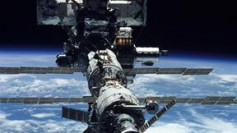Elon Musk's SpaceX is prompting its Taiwan-based suppliers to shift manufacturing operations to alternative countries, citing growing geopolitical concerns tied to tensions between Taiwan and China.
According to corporate documents and sources familiar with the matter, the move has already led multiple suppliers to establish new manufacturing facilities in Vietnam and Thailand. Reuters reported that at least one supplier, Chin-Poon Industrial, confirmed that SpaceX requested the relocation due to "geopolitical considerations," leading the company to transfer operations to Thailand.
The decision reflects SpaceX's broader strategy to mitigate potential disruptions stemming from China's stance toward Taiwan. Beijing views the democratically governed island as a breakaway province and has not ruled out using military force to bring it under Chinese control. This stance, underscored by increased Chinese military drills and a simulated blockade of Taiwan in recent months, has heightened concerns about the stability of supply chains that rely on Taiwanese manufacturing.
SpaceX's supplier network includes around a dozen companies based in Taiwan. While Starlink, SpaceX's satellite internet service, is not available in Taiwan due to regulatory hurdles, the company maintains deep production ties with Taiwanese manufacturers. This relationship has become increasingly precarious amid escalating regional tensions, prompting SpaceX to encourage its suppliers to shift operations to other parts of Southeast Asia.
Wistron NeWeb Corporation, a prominent SpaceX supplier, has already expanded its production capabilities in Vietnam, reportedly producing routers and network gear for Starlink at a factory in Hanam Province. According to factory workers and contractors, Wistron NeWeb plans to double its workforce, highlighting the scale of its expansion effort. Another supplier, Universal Microwave Technology, has also invested in Vietnam this year, signaling a broader trend among Taiwanese companies to reduce reliance on domestic manufacturing.
Taiwan's Ministry of Economic Affairs acknowledged the developments but urged that "short-term political factors should not affect the supply chain relationship between international satellite companies and Taiwan manufacturers." The government emphasized Taiwan's strong position in the international space industry, boasting approximately 50 companies involved in satellite manufacturing and related technologies, with annual industry output exceeding NT$200 billion (US$6.26 billion).
The backdrop to SpaceX's move is complicated by Musk's history with Taiwan. Last year, he described Taiwan as an "integral part" of China, eliciting a strong rebuke from Taiwanese officials. "Listen up, Taiwan is not part of the PRC [People's Republic of China] and certainly not for sale!" Taiwan's Foreign Minister Joseph Wu stated in response. Musk's Tesla, another major player in the Chinese market, has also conformed to Chinese data laws to gain closer regulatory approval for its self-driving technologies, adding another dimension to his complex relationship with Beijing.
Vietnam has emerged as a focal point for SpaceX's regional manufacturing plans. Reports indicate that SpaceX is contemplating a $1.5 billion investment to establish a satellite production hub in Vietnam, a move welcomed by Vietnamese authorities. Industry sources revealed that SpaceX representatives explored intellectual property protections and production safeguards during private meetings last year, reflecting a keen interest in building a stable manufacturing presence in the region.
SpaceX's efforts to diversify its supply chain underscore the delicate balance global companies must maintain amid shifting geopolitical dynamics. As tensions between China and Taiwan show no signs of abating, companies like SpaceX are making calculated moves to safeguard their supply chains, ensuring that critical production capabilities remain resilient in an increasingly uncertain global landscape.



